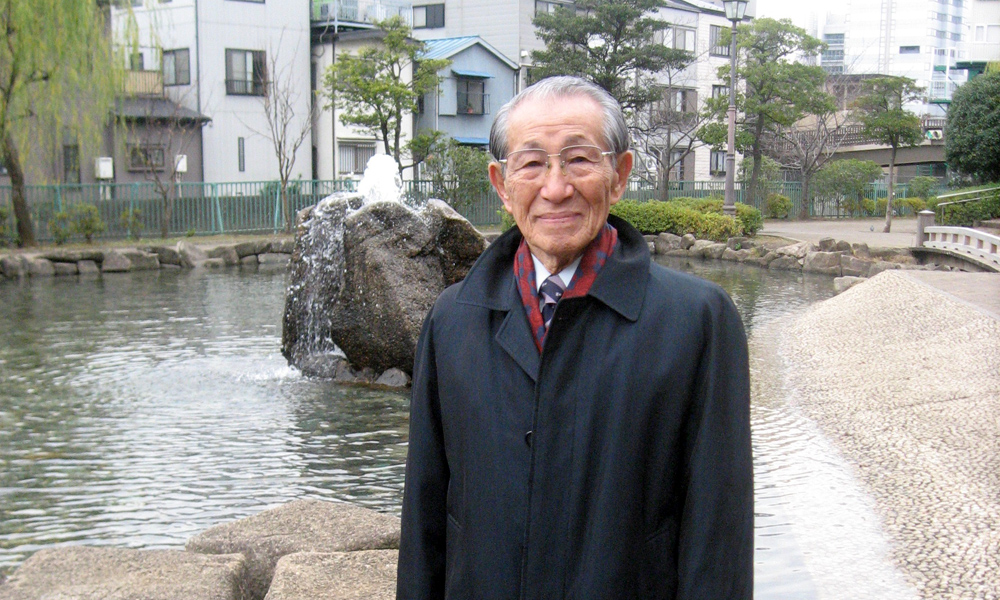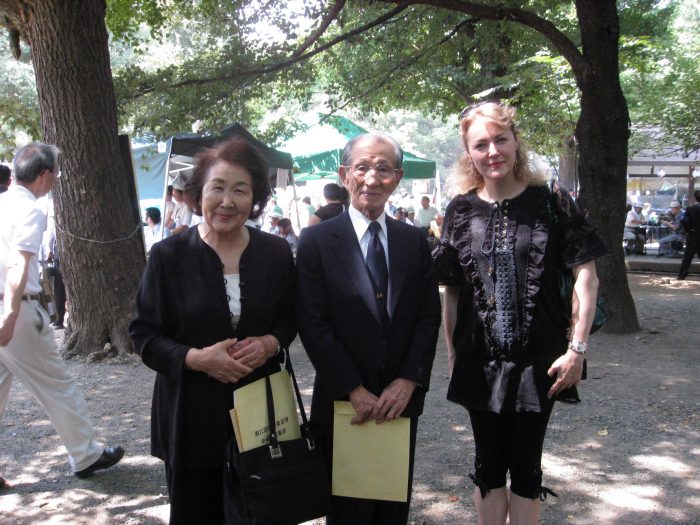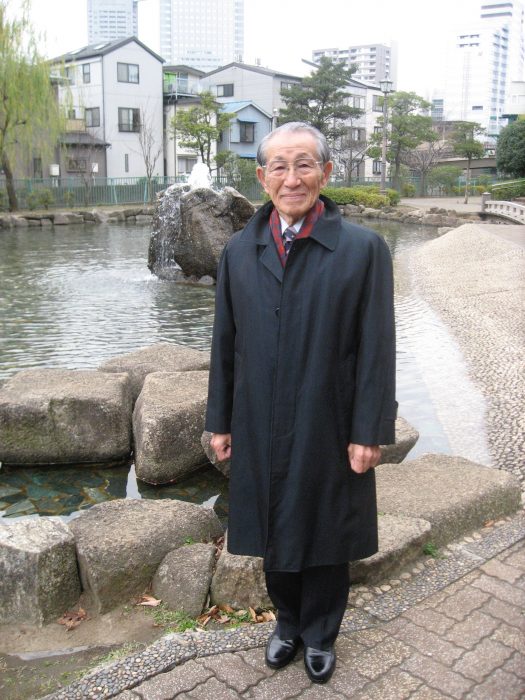
Words to Live by: Japanese soldier Hiroo Onoda
Interview by Judit Kawaguchi
People can not live by themselves. If you have any doubts about this, just imagine being truly alone. Can you find all your food, make a fire, sew your clothes, and take care of yourself when you get sick, or injured? Can you make it?
If you have some thorns in your back, somebody needs to pull it out for you. We need buddies. The sense of belonging is born in the family, and later includes friends, neighbors, community and country. That is why the idea of a nation is really important.
History is written by the victors. Since the end of World War II, Japanese history education is based on the US war guilt program and leftwing propaganda. I don’t blame the US for this: they wanted a weak Japan and their mission is accomplished.
Men should never give up. I never do. I would hate losing.
Men should never compete with women. If they do, the guys will always lose. That is because women have a lot more endurance. My mother said that and she was so right.
A woman’s life is more important than a man’s. We are not equal as men can not give birth.
If we had fewer men, it wouldn’t be a big deal. Same in nature: for 30 cows one bull is plenty.
Parents should raise more independent children. In the 1980’s I was living in Brazil, when I read about a shocking murder in Japan. A 19year-old man killed his parents after failing the university entrance exam. I was stunned: why had he killed his parents instead of moving out? I guess he didn’t have enough confidence. I thought this was a sign that Japanese were getting too weak. I decided to move back to Japan to establish a nature school to give children more power.
One must always have a public viewpoint in mind. Every minute of of every day, for 30 years, I served my country. I have never even wondered if that was good or bad for me on an individual level.
It was a nightmare to try to get a good night’s sleep. I slept outdoors on mountain slopes with a 10 to 15 degree inclination because this way if I were awakened, I could quickly assess the situation without sitting up and see where the enemy was located.
Without a huge shock, the sleepyhead, ignorant Japanese will never wake up. Unless nodon or tepodon fly over our heads, we do nothing to protect ouselves.
Japanese political leaders used to be wise. All Asian nations except Thailand and Japan were colonized. In our case, the Tokugawa shogunate made a smooth transition into the Meiji goverment in order to save us from colonization.
Never complain. When I did, my mother said that if I didn’t like my life, I could just give up and die. But she also reminded me that when I was inside her, I told her that I wanted to be born so she delivered me, breastfed me and changed my diapers. She said that I had to be brave.

There are two kinds of people: after an injury one type considers what he can do not to get hurt again but he still goes back to fight. The other type gets scared, quits the battle and forever blames somebody for the injury.
If you want to stay alive, you must keep moving and you had better do it at full steam. If you wish to die, that is your choice, but if you decide to live, then you ought to live life to its fullest. That means you must make an effort, in your own best way. We switched camp every couple of days, carried all our belonging with us and hid all signs of ourselves from the islanders. We were always on the move.
Parents should remember that they are supposed to die before their children. Nobody will help them later on so the greatest gift parents can give their children is independence.
Life is not fair and people are not equal. Some people eat better than others. At our nature school, children participate in survival games. For example, they must prepare their own dinner from ingredients they find. Bartering is allowed but still some children will have a feast compared to others.
Single-sex schools are more proper for children. Girls mature by age 19 but boys are just boys until about 24 or 25, so naturally girls win against boys.
Once you burnt your tongue on hot miso soup, you blow even on the cold sushi. After World War II, this is how the Japanese government behaves towards the US and other nations. We are so careful and let others devour so much yet they are always hungry for more from Japan.
Some dreams are best not to wake up from. On Lubang I believed I was defending Japan by making the island into a stronghold as best as I could with my two comrades, Shimada and Kozuka. When they both died, I continued my mission alone. When World War II ended for me in 1974, the past all seemed like a dream.
Never take the news at face value. I read some of the Japanese newspaper from 1945 till 1974 and also listened to the radio. I was taught to read between the lines and their incorrect reports about my comrades and me made me doubt everything they said and convinced me that the war was far from over and that the Japanese troops must be landing soon.
Japan was forced to participate in World War II. The ABCD powers made such strong sanctions against Japan that we had no way to import oil, steel or anything. We were going to die or we were going to be invaded and enslaved.
Wearing others’ glasses will damage your vision. When we lost the war, we were made to wear American-made glasses with a strong prescription that we didn’t even need in the first place. It damaged our eyes and our perception and now we are trying to switch to Japanese corrective lenses.

A version of this interview appeared in The Japan Times on Tuesday, April 25, 2006
http://www.japantimes.co.jp/life/2007/01/16/people/hiroo-onoda/
This QuoteOnce you burnt your tongue on hot miso soup, you blow even on the cold sushi. — Hiroo Onoda